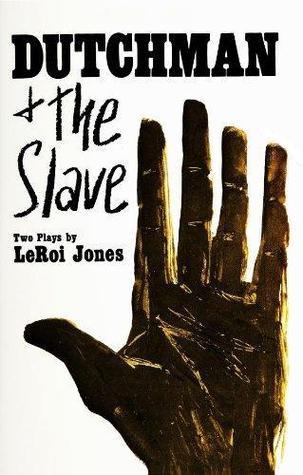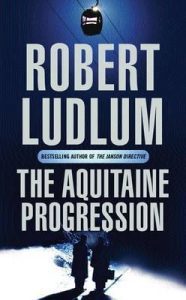Title: Dutchman & The Slave
Author: Amiri Baraka
First published January 1, 1964
96 pages, Paperback
ISBN: 9780688210847 (ISBN10: 0688210848)
Rating: 3.78
Overview
Amiri Baraka’s Dutchman & The Slave are both groundbreaking plays that delve into the complex and tumultuous relationship between black and white Americans. With raw and unapologetic language, these plays confront the racial tensions that have plagued our society for centuries.
Dutchman, in particular, is designed to shock and provoke audiences with its murderous rage and unflinching portrayal of the brutal realities of racism. Originally produced off-Broadway to great acclaim, these plays continue to be a powerful and important voice in American theatre.
Through their intense and honest anger, Baraka’s works shed light on a deadly serious problem and demand that we confront the uncomfortable truths about race and power in our society.
About the Author
Amiri Baraka was born in Newark, New Jersey and attended Barringer High School. His father, Coyt Leverette Jones, worked as a postal supervisor and lift operator, while his mother, Anna Lois (née Russ), was a social worker.
Baraka later adopted the name Imamu Amear Baraka in 1967. He studied at Rutgers, Columbia, and Howard Universities, but left without obtaining a degree.
He also studied at the New School for Social Research. Baraka served as a gunner in the U.S. Air Force for three years.
Baraka moved to Greenwich Village in 1952 and began working in a warehouse for music records. During this time, he developed an interest in jazz and came into contact with Beat, Black Mountain College, and New York School poets.
In 1958, he founded Totem Press and published works from Beat Generation icons such as Jack Kerouac and Allen Ginsberg.
Baraka became politically active and visited Cuba in 1960 with a Fair Play for Cuba Committee delegation. His first book of poems, Preface to a Twenty Volume Suicide Note, was published in 1961, and he wrote Blues People: Negro Music in White America in 1963, which became one of the most influential volumes of jazz criticism.
His play Dutchman premiered in 1964 and received an Obie Award the same year.
After the assassination of Malcolm X, Baraka left his wife and children and moved to Harlem. His poetry became controversial and took on a revolutionary and anti-Semitic tone.
He married his second wife, Sylvia Robinson, in 1966 and lectured at San Francisco State University in 1967.
In 1968, he was arrested in Newark for allegedly carrying an illegal weapon and resisting arrest during the 1967 Newark riots. He was sentenced to three years in prison but was later acquitted.
Baraka became a Marxist and supporter of third-world liberation movements in the 1970s.
In 1984, Baraka became a full professor at Rutgers University but was denied tenure. He won an American Book Award in 1989 and a Langston Hughes Award.
He contributed to the autobiography of Quincy Jones in 1990 and acted in Warren Beatty’s film Bulworth in 1998. Baraka also contributed to the AIDS benefit album Offbeat: A Red Hot Soundtrip produced by the Red Hot Organization in 1996.
In 2002, he was listed as one of the 100 Greatest African Americans by scholar Molefi Kete Asante.
Editoral Review
Amiri Baraka’s Dutchman & The Slave is a powerful play that explores the complex themes of race, gender, and power in America. Originally published in 1964, the play is a seminal work of the Black Arts Movement, a cultural movement that aimed to create art that was explicitly political and that celebrated Black culture and identity.
The play is divided into two acts: Dutchman and The Slave. Dutchman takes place entirely on a New York City subway car, where Lula, a white woman, engages in a provocative and disturbing dialogue with Clay, a young Black man.
As the conversation becomes increasingly heated, the play builds to a shocking and violent climax. The Slave is set in a dingy apartment where a white woman, Grace, attempts to seduce her Black employee, Walker, while her husband is away.
The play explores the power dynamics between the characters, as well as the ways in which racism and sexism intersect. Baraka’s writing is vivid and electrifying, with dialogue that crackles with tension and complexity.
The language is frequently confrontational and raw, but it is also poetic and lyrical. The play is structured like a Greek tragedy, with a sense of inevitability and a fatalistic tone.
One of the strengths of the play is the way that it addresses issues of race, gender, and power head-on, without shying away from the uncomfortable truths that they reveal. Baraka’s characters are complex and multifaceted, with conflicting motivations and desires.
The play explores how racism and sexism are deeply embedded in American culture, and how they perpetuate systemic forms of injustice. However, the plays are not without their flaws.
Dutchman, in particular, has been criticized for its portrayal of women. Lula is often seen as a one-dimensional character, existing solely to torment and antagonize Clay.
Similarly, Grace in The Slave is often seen as a caricature of a sexually aggressive white woman. Despite these criticisms, Dutchman & The Slave remains a groundbreaking and important work of American drama.
The play’s themes of race, gender, and power are as relevant today as they were in 1964. Baraka’s writing is incendiary and provocative, challenging audiences to confront uncomfortable truths about American society.
In conclusion, I would highly recommend Dutchman & The Slave to anyone interested in American drama or the Black Arts Movement. It is a challenging, provocative, and impactful play that will leave a lasting impression on anyone who reads it.



